A moral theologian sets forth a closely reasoned guide to the development of moral doctrine
In the exhortation Amoris Lætitia, the most controversial question is the one concerning Communion for the divorced and remarried, which however is never expressly mentioned.
It must be noted that above all, in the eighth chapter the language is at times very indefinite and can lend itself to conclusions that are not only different but even conflicting.
So, then, precisely with regard to this chapter, I would like to present a few general reflections and then take into consideration the most controversial expressions.
General Criteria of Interpretation
1. The first criterion of interpretation is that of the context in which the exhortation must be read in order to avoid distorting it.
This context was provided by John Paul II in the encyclical Veritatis Splendor, in particular at footnote 100:
“The development of the Church’s moral doctrine is similar to that of the doctrine of the faith. The words spoken by John XXIII at the opening of the Second Vatican Council can also be applied to moral doctrine: ‘This certain and unchanging teaching (i.e., Christian doctrine in its completeness), to which the faithful owe obedience, needs to be more deeply understood and set forth in a way adapted to the needs of our time. Indeed, this deposit of the faith, the truths contained in our time-honored teaching, is one thing; the manner in which these truths are set forth (with their meaning preserved intact) is something else’.”
So the hermeneutical principle of interpretation is found here: the documents of the magisterium, including those on moral issues, must be interpreted according to the hermeneutic of continuity and development. And certainly not according to the hermeneutic of discontinuity, rupture, or transformation with respect to the perennial magisterium.
The progress of the moral doctrine of the Church takes place under the action of the Holy Spirit that gradually leads to the knowledge of the whole truth, without ever contradicting or denying the previous magisterium.
So this is a homogeneous and not a dialectical progress.
2. Having presented this fundamental premise, Amoris Lætitia must be read in the light of the previous magisterium, because it continues and explores this, as the exhortation itself says repeatedly, as for example when it says at no. 79:
“Therefore, while clearly stating the Church’s teaching, pastors are to avoid judgments that do not take into account the complexity of various situations, and they are to be attentive, by necessity, to how people experience and endure distress because of their condition.”
Since it is above all the eighth chapter of the exhortation that has been interpreted in the most disparate and contradictory ways, it is necessary to say that the exact interpretation, the one indicated by the magisterium, is the one given in meliorem partem, if it can be put this way, meaning “in the line of continuity.”
Moreover, it is only this interpretation that can make the text understood without ambiguities and without contradictions.
3. So while the interpretation in meliorem partem does not run up against objections that would block its way, the one given in peiorem partem, meaning “according to the hermeneutic of rupture,” instead leads nowhere, instead running up against a myriad of statements by the magisterium and showing itself to be inconclusive and mistaken.
The Correct Interpretation of a Few Statements of Amoris Lætitia
1. No. 302 of the exhortation recalls a great variety of reasons to be taken into account in the evaluation of individual cases:
“The Catechism of the Catholic Church clearly mentions these factors: ‘imputability and responsibility for an action can be diminished or even nullified by ignorance, inadvertence, duress, fear, habit, inordinate attachments, and other psychological or social factors’ (no. 1735). In another paragraph, the Catechism refers once again to circumstances which mitigate moral responsibility, and mentions at length ‘affective immaturity, force of acquired habit, conditions of anxiety or other psychological or social factors that lessen or even extenuate moral culpability.’ (no. 2352) For this reason, a negative judgment about an objective situation does not imply a judgment about the imputability or culpability of the person involved (Pontifical Council for Legislative Texts, Declaration Concerning the Admission to Holy Communion of Faithful Who are Divorced and Remarried (24 June 2000).”
So then, those listed are all reasons why an ecclesiastical tribunal can give and in fact already gives a sentence of nullity of the marriage contracted.
In order to prevent it being said in a Christian community that one divorced and remarried person has been given absolution and another has not, the best thing is to proceed methodically, which means asking for a sentence of nullity of the marriage and possibly healing at its root the union contracted civilly.
This is the first way suggested by Pope Francis with the reform of the procedure in marriage cases. Even more, he himself has asked that the sentence be given within a year, without bureaucratic delays. This is the most orderly and sure way.
On the contrary, leaving everything to the not-always-enlightened evaluation of the parish priest or confessor can lead to uncertainty and can cause confusion and discontent in the communities. It could easily be argued: why one ‘yes’ and another, ‘no’?
2. At no. 299 it says:
“The baptized who are divorced and civilly remarried need to be more fully integrated into Christian communities in the variety of ways possible, while avoiding any occasion of scandal.”
This too must always be taken into account. In the event that the priest should give absolution to a divorced and remarried person or to a cohabiting person, it is necessary to recall that one can receive Holy Communion only where one is not known as remarried or cohabiting. Otherwise it would generate scandal among the faithful.
The declaration of the Pontifical Council for Legislative Texts of July 7, 2000, on the admissibility of the divorced and remarried to Holy Communion, in fact says:
“Those faithful who are divorced and remarried would not be considered to be within the situation of serious habitual sin who would not be able, for serious motives – such as, for example, the upbringing of the children – ‘to satisfy the obligation of separation, assuming the task of living in full continence, that is, abstaining from the acts proper to spouses’ (Familiaris Consortio, n. 84), and who on the basis of that intention have received the sacrament of Penance. Given that the fact that these faithful are not living ‘more uxorio’ is per se occult, while their condition as persons who are divorced and remarried is per se manifest, they will be able to receive Eucharistic Communion only ‘remoto scandalo’.”
“Remoto scandalo” means that Communion can be received privately or where one is not known as divorced and remarried or cohabiting, to keep from causing judgment, confusion, distress, and scandal among the faithful.
3. This is also the perspective for understanding what is written at no. 305: “Because of forms of conditioning and mitigating factors, it is possible that in an objective situation of sin — which may not be subjectively culpable, or fully such — a person can be living in God’s grace, can love and can also grow in the life of grace and charity, while receiving the Church’s help to this end. Discernment must help to find possible ways of responding to God and growing in the midst of limits.”
Here the Exhortation implicitly reiterates that in order to receive Holy Communion it is necessary to be in the grace of God.
This is not a human but a divine norm, as Sacred Scripture recalls: “Whoever eats the bread or drinks the cup of the Lord in an unworthy manner will be guilty of profaning the body and blood of the Lord. Let each one therefore examine himself, and so eat of the bread and drink of the cup. For any one who eats and drinks without recognizing the body of the Lord eats and drinks judgment upon himself. That is why there are many sick among you, and a good number have died” (1 Cor 11:27-30). (Fr. Bellon’s article originally appeared in its entirety on the website chiesa.espresso.repubblica.it.)

Angelo Bellon, O.P.
Angelo Bellon, O.P., is a professor of moral theology at the seminary of the Archdiocese of Genoa, Italy. The following is a large excerpt from his original essay.



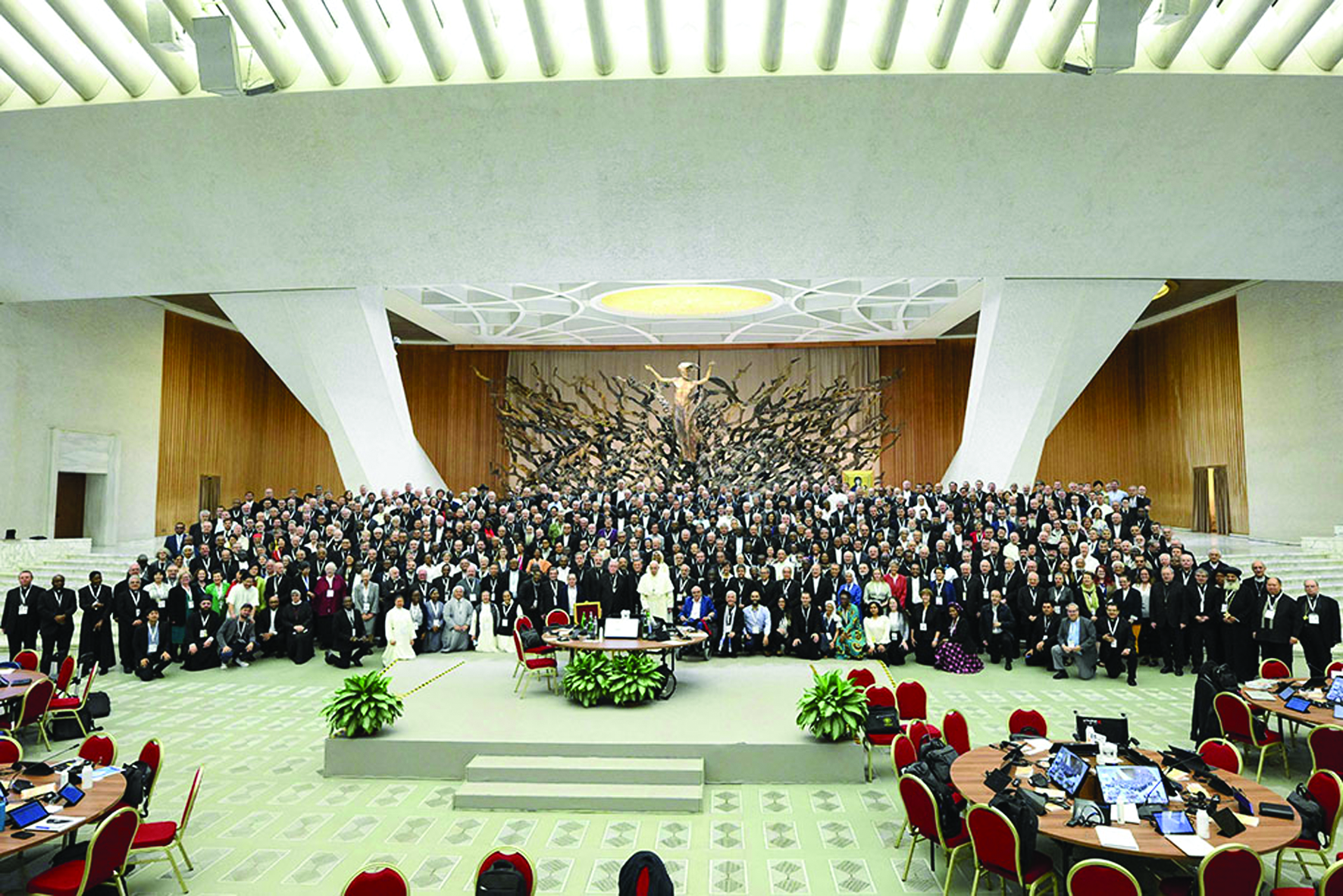
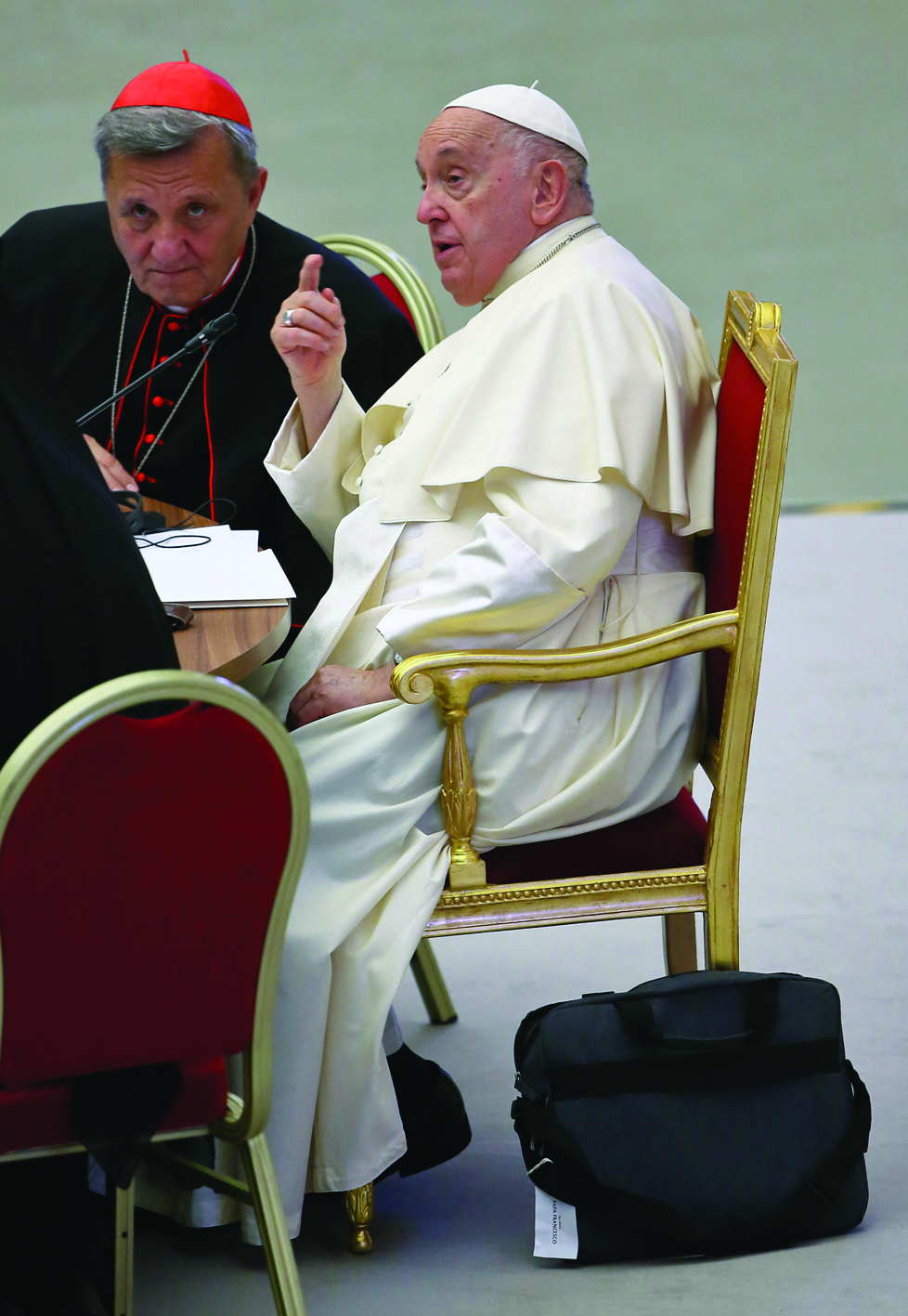
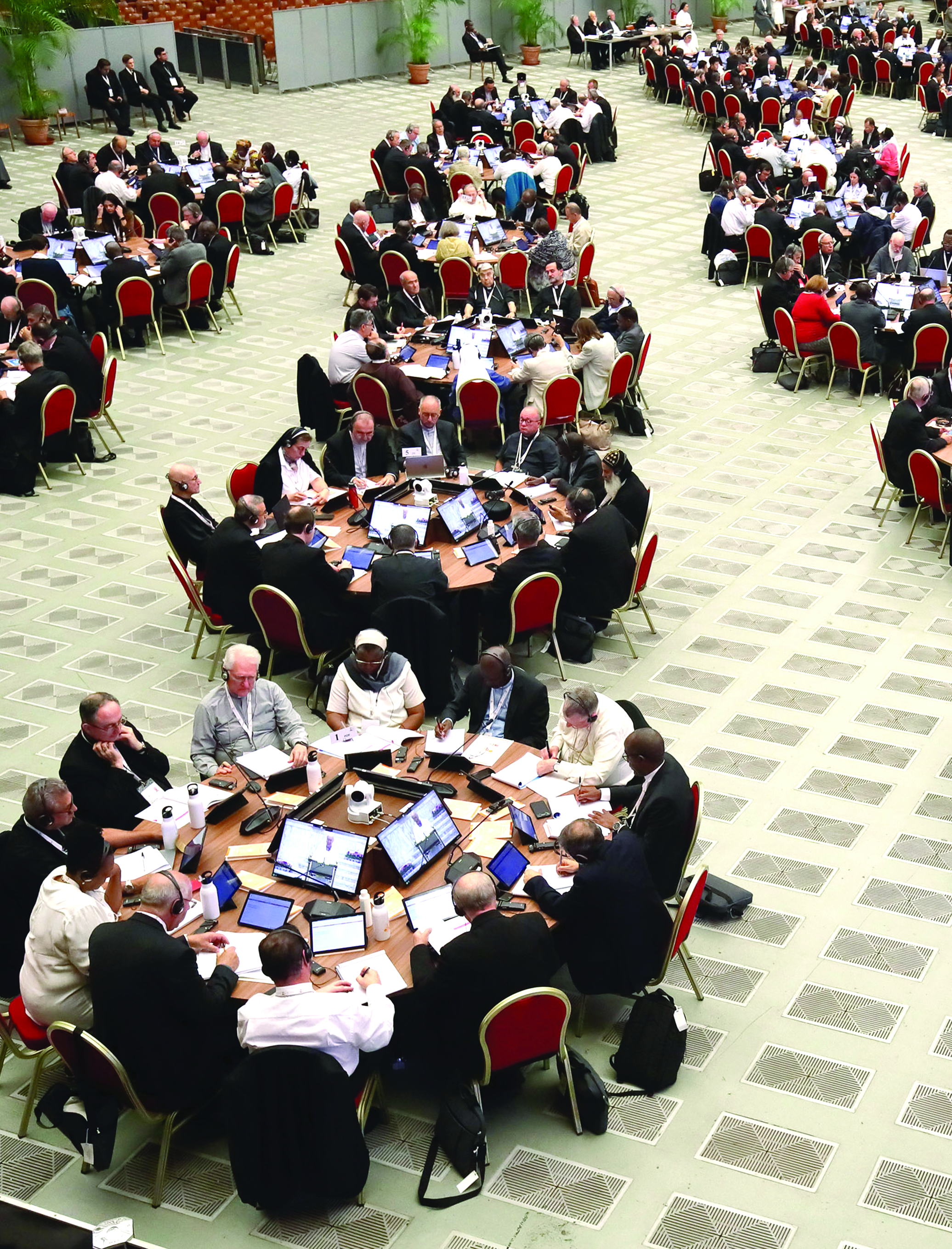
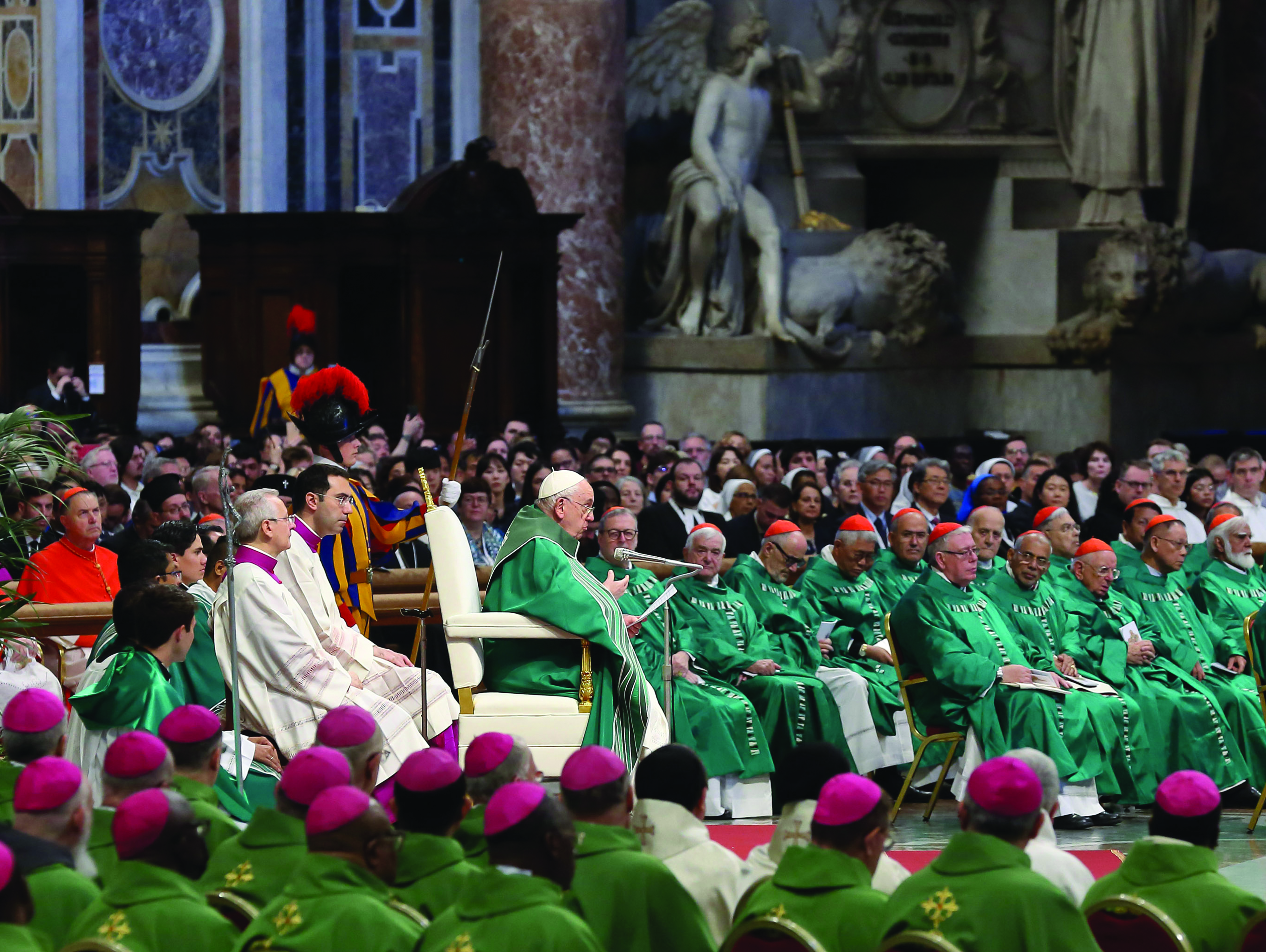
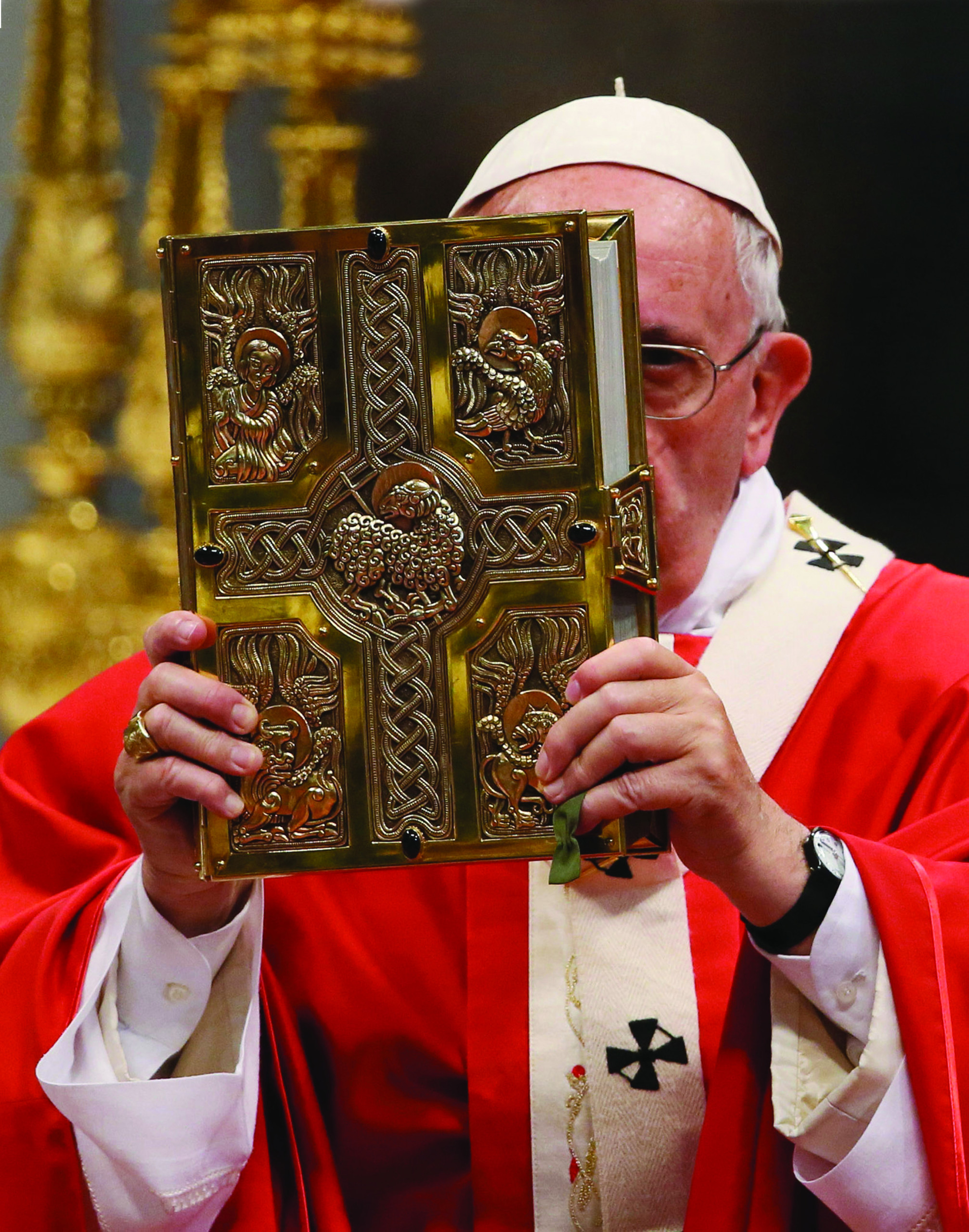
Facebook Comments